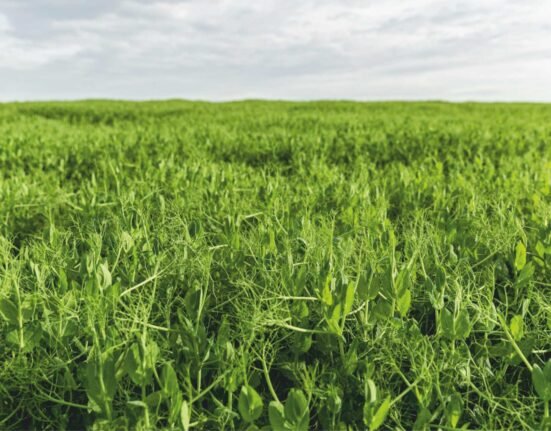In a world where consumer preferences are evolving unprecedentedly, ADM’s latest 2025 Global Consumer Trends Report sheds light on the key forces shaping the future of food, wellness, and sustainability. From the growing emphasis on longevity to the explosion of personalised nutrition, this report highlights eight pivotal trends that will drive innovation and transformation across the food and beverage industry.
A DEEP DIVE INTO THE KEY TRENDS
- Lifelong Vitality: The New Age of Health
- Gone are the days of reactive healthcare—today’s consumers are taking a proactive approach to well-being. People are increasingly looking for ways to maintain their health across all stages of life. Whether through “age hacking” strategies aimed at delaying biological ageing or through stress-reduction techniques such as mindfulness and herbal remedies, holistic health is at the forefront of consumer concerns.
- Notably, this trend extends to pets, with owners seeking specialised nutrition to support their furry companions’ longevity and comfort. Demand for functional foods and supplements targeting joint health, cognitive function, and immunity in pets is expected to rise.
- Personalized Optimization: The Rise of Tailored Nutrition
- Customisation is no longer a luxury—it’s an expectation. The demand for personalised nutrition is surging, with consumers seeking food and beverage experiences that align with their unique health goals, performance needs, and lifestyles.
- From DNA-based diet recommendations to AI-driven meal-planning apps, the future of food is intensely personalised. Wearable tech and data-driven insights empower individuals to make smarter dietary choices, leading to the rise of hyper-customized meal plans and supplement regimens. This trend allows brands to offer bespoke solutions, fostering deeper consumer connections and enhancing brand loyalty.
- Infinite Tastes: A Global Culinary Adventure
- Social media, international migration, and the digitisation of food culture fuel an insatiable curiosity for global flavours. Consumers are eager to experiment with new cuisines, leading to a demand for authentic, culturally rich food experiences.
- From spicy Sichuan dishes to Middle Eastern street food, the appetite for international flavours is at an all-time high. Additionally, there is a growing expectation that these flavours be presented in a way that respects cultural authenticity rather than being adapted to suit mainstream palates. Brands collaborating with regional chefs and local producers will gain a competitive edge.
- Mood Quest: Eating for Emotional Well-Being
- In a world grappling with heightened levels of anxiety and stress, consumers are seeking foods that positively impact their mood and emotions.
- From functional beverages infused with adaptogens like ashwagandha and reishi mushrooms to comforting, nostalgic flavours that evoke a sense of security, the food and beverage industry responds with products that deliver joy, relaxation, and balance.
- Expect an increase in mood-enhancing chocolates, nootropic-infused teas, and gut-friendly probiotics that directly link digestive health to mental wellness.
- Choice Explosion: The Era of Infinite Options
- Traditional food categories no longer constrain consumers. With access to many choices—thanks to social media, influencers, and digital innovation—people are embracing more flexible approaches to food, pleasure, and wellness.
- This evolution in consumer behaviour calls for brands to rethink traditional product lines and offer greater customisation and variety. Hybrid food experiences, such as fusion cuisine or products combining plant-based and animal proteins, are seeing increased demand. Companies that embrace diversity in their offerings will have a competitive advantage.
- Climate Action: Sustainability as a Priority
- As the planet faces growing environmental challenges, both consumers and companies are making sustainability a priority.
- From reducing carbon footprints to ensuring food security, businesses are reimagining their operations to minimise their ecological impact. Regenerative agriculture, zero-waste production methods, and carbon-neutral supply chains are now more than buzzwords—they are fundamental strategies for the future.
- Expect more plant-based, upcycled, and regenerative agriculture-driven products to dominate the shelves in 2025 and beyond. Consumers are willing to support brands that align with their values, making transparency and eco-friendly initiatives a non-negotiable in modern food marketing.
- Natural Grounding: The Power of Plant-Based Innovation
- Consumers are leaning into nature’s bounty like never before, gravitating toward foods made with natural ingredients, whole foods, and plant-based formulations.
- Clean-label products featuring minimal processing and recognisable ingredients are gaining widespread appeal. Fermented foods, heirloom grains, and plant-based proteins continue to dominate the wellness landscape, with innovation driving new formats such as mushroom-based meat alternatives, dairy-free cheeses, and botanical-infused snacks.
- New Value Equation: Rethinking Consumer Priorities
- With economic uncertainty and financial pressures, consumers are reassessing how they define value.
- Beyond price, they factored in health benefits, convenience, indulgence, and emotional satisfaction when purchasing. This means striking a balance between affordability, functionality, and premium experiences for brands.
- Companies that offer multi-functional products—such as protein-enriched snacks supporting gut health—will appeal to budget-conscious yet health-focused shoppers. Convenience-driven solutions, like meal kits and ready-to-drink functional beverages, will continue to gain traction in a fast-paced world.
The Road Ahead: What This Means for Brands
- ADM’s 2025 report paints a picture of an industry that is adapting to change and actively driving it. The future of food and beverage is personalised, sustainable, and emotionally engaging. Brands that embrace these trends—offering tailored nutrition, innovative flavours, and environmentally conscious solutions—will lead the charge in the years ahead.
- The consumer of tomorrow is health-conscious, experience-driven, and sustainability-focused. The question is: Is your brand ready?







